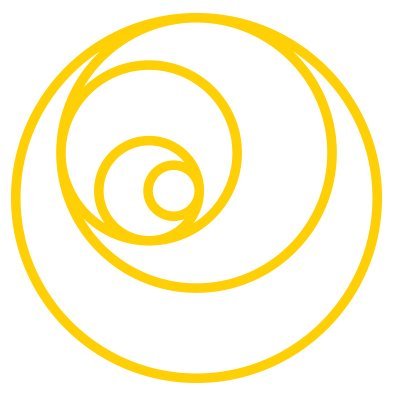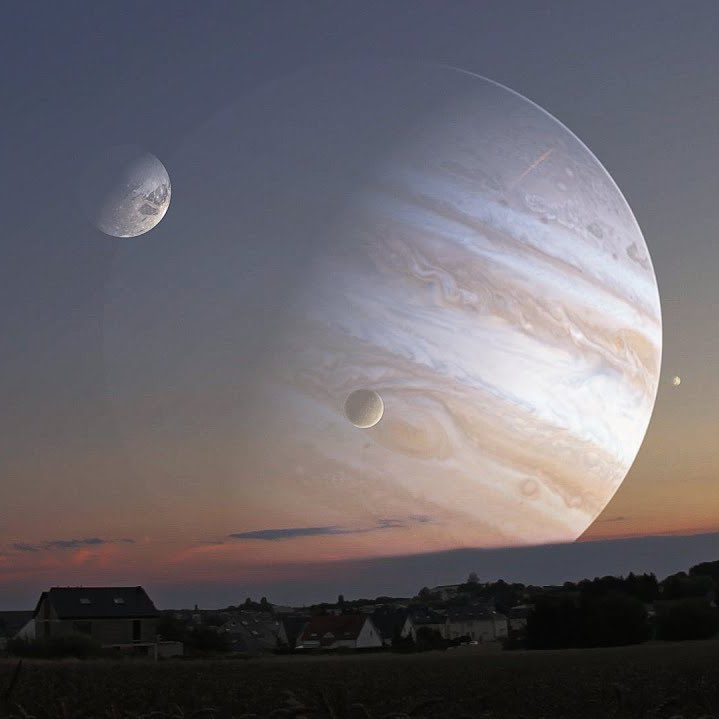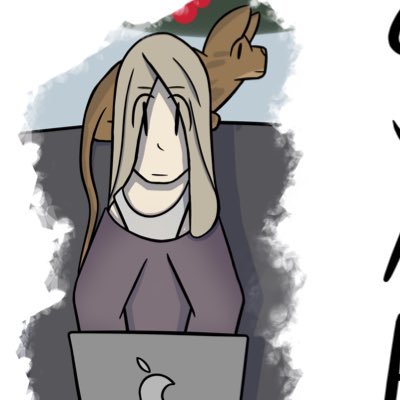
Nautilus Magazine
@NautilusMag
Followers
87K
Following
9K
Media
6K
Statuses
34K
Science's boldest ideas decoded by the brightest living thinkers and writers. Link below to subscribe to the FREE newsletter.
New York, NY
Joined February 2012
This is pretty plausible -- giant planet moons have the potential to host as many civilizations as rocky planets, as I laid out in this @NautilusMag article: https://t.co/F35bwp4fPg
nautil.us
Why exomoons could sustain ET as well as any exoplanet
So much human culture, history, mythology, and biology is tied to the stable, cyclical orbits and balanced appearance of the Moon and sun in our sky. Can you imagine how different life would be if we’d somehow evolved to live on the moon of a gas giant with a view like this?
0
5
21
Black holes refuse to cooperate with Albert Einstein’s model that explains the workings of gravity — but what if we consider black holes as quantum objects? Learn more in tomorrow's free story in the Nautilus newsletter. Sign up at the link in our bio!
2
0
6
Scientists are working to rewrite the genetic code. One aspiring creation within this field "would be unlike anything alive today—and perhaps unlike anything that has ever existed on Earth." Learn more in the free story in this weekend's newsletter. Sign up in our bio!
0
0
5
Paul Stamets thinks plenty of problems can be solved by fungi—devastating bee diseases included. Get more details in the free story in tomorrow's newsletter. Sign up at the link in our bio!
1
2
5
It's tempting to call a crocodile a "living fossil"—but do those even exist? Ferris Jabr investigates in the free story in tomorrow's newsletter. Sign up at the link in our bio.
1
1
4
Why are humans so convinced comets portend doom? In the free story in tomorrow's newsletter, author Clayton Dalton goes deep into our desire to parse the unexpected through stories. Sign up at the link in our bio!
0
0
6
In 2011, a weird finding deep below the Earth's surface threatened to "rattle the foundation of physics like it hadn’t been rattled since 1900." Get more details in the free story in tomorrow's Nautilus newsletter. Sign up at the link in our bio!
0
1
7
Forget the stereotypes — fish are way smarter than you think. Find out more in the free story in tomorrow's newsletter. Sign up at the link in our bio!
0
0
5
Languages "settle" into landscapes like physical artifacts do. Learn about the rich information hidden in language in the free story in this weekend’s newsletter. Sign up at the link in our bio!
1
0
6
5. "Evolution and Guinea Pig Toes," Zachary B. Hancock @nautilusmag "It’s a complex idea, but Hancock is a skilled guide . . . ." https://t.co/17XL4RbaVZ
nautil.us
How one animal's oddity inspired Sewall Wright to take on one of Darwin's big ideas
1
3
3
New, me @NautilusMag Rethinking the Big Bang
nautil.us
The largest map of the universe reveals giants at the birth of the universe
0
2
5
More than 20,000 feet up in the Himalayas, people hunt for gold in the form of a prized fungus—but it’s facing some serious threats. Learn more in the free story in tomorrow’s newsletter! Sign up at the link in our bio.
0
0
2
🚨 New killer whale technology just dropped! 🚨 Thrilled to write this piece about the beloved southern resident orcas grooming each other with kelp tools for @NautilusMag: https://t.co/ajOyJoiJAz?
nautil.us
Orcas in Washington are creating grooming tools out of kelp stalks
1
2
6
It’s time to make human-chimp hybrids, argues evolutionary biologist David P. Barash—and the humanzee is more realistic of a feat than you’d think. Learn why in the free story in tomorrow's newsletter. Sign up at the link in our bio!
1
0
4
Do you know the father of digital life as we know it today? His offspring include AI, Siri, and Pixar, but he remains surprisingly unknown. Meet him in the free story in this weekend's Nautilus newsletter. Sign up at the link in our bio!
0
0
2
Is all matter conscious? Investigating this nebulous question could “solve two of the hardest problems in science and philosophy at once.” Find out more in the free story in tomorrow’s newsletter. Sign up at the link in our bio!
0
0
4
Physicians often use race to try to provide more equitable care. But that can end up harming patients. Learn more in the free story in tomorrow's Nautilus newsletter. Subscribe at the link in our bio!
0
1
2
If you're in NYC or need an excuse to be, please join Nautilus on June 25 at the legendary Explorers Club. Meet Stuart Firestein and Joseph LeDoux as they delve into what it is to be human, exploring the nature, limits, and mysteries of consciousness. Consider sticking around
0
1
4
The hunt for elusive dark matter can actually teach us a lot about ourselves—the strange substance’s name suggests that “we all want a path from Darkness to Light.” Hear how darkness pervades our imaginations in the free story in tomorrow's newsletter. Sign up at the link in our
0
0
3
Fish with certain body types and behaviors are more likely than others to get caught. Over time, fishing can gradually change the makeup of the remaining population—and over many generations, could even influence evolution. My latest for @NautilusMag:
nautil.us
Our appetite for fish can alter their bodies, minds, and behaviors
0
3
5








